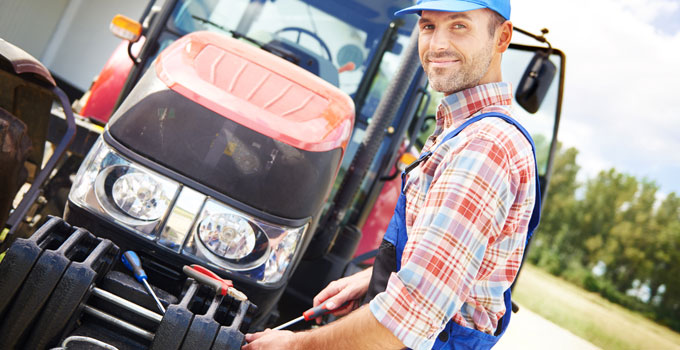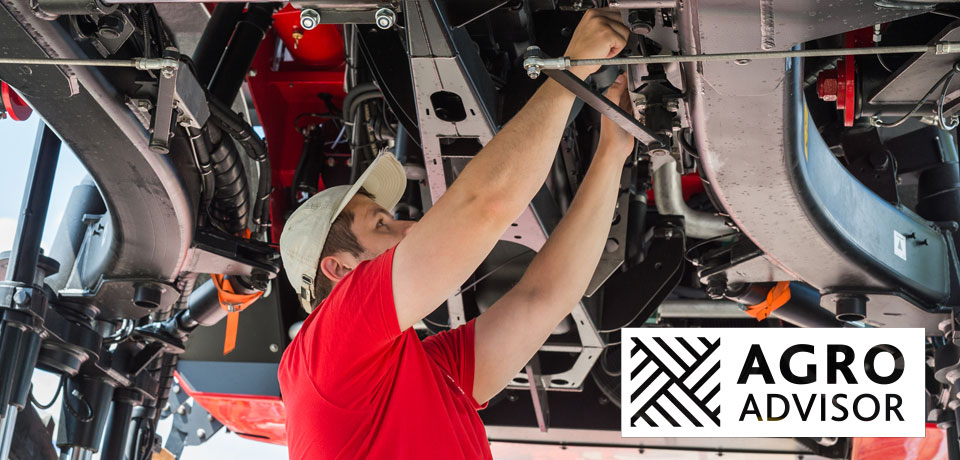After a long winter, the thought of preparing your equipment for the busy growing season ahead can be daunting.
However, it pays to do the work.
By taking time to inspect your equipment and complete any necessary maintenance, you can avoid costly breakdowns during seeding and improve the productivity of your farm. With some extra work today — and some help from Mother Nature — you can be in the field in good time and well on your way to a successful growing season.
Fluid performance
After sitting dormant for long periods of time, engine oils, transmission hydraulic fluids and grease can become susceptible to contamination, which can hinder your performance.
For optimal equipment performance, be sure to document oil change intervals and monitor fluid systems:
- Consistently check all fluid levels.
- Monitor all hoses and repair any leaks.
- Test the quality of the existing oil.
- Change oil at recommended intervals.
- Replace oil filter when required.
Be careful not to mix fluids or use an incorrect hydraulic fluid, which can lead to a number of performance issues, including premature gear wear and loss of power. Always consult your owner’s manual for part numbers and recommended performance specifications.

Battery maintenance
In the spring, check the voltage meter reading of the batteries on your equipment. A meter reading below nine volts indicates a battery may need to be replaced. While inspecting a battery, consider the following:
- Make sure the battery connections are tight and free of corrosion.
- Look for cracks and leaks. Leaking batteries must be replaced immediately. Ensure protective gloves and goggles are worn when handling batteries.
- Check the fluid levels in all cells. Add water to each cell if needed.
- Replace any battery cables that are frayed or have cracked post ends.
- Spray battery cable ends with sealant to prevent battery cable end corrosion.
Tires
When you head out into the field, the tires on your equipment should be in good condition, be free of cracks and have adequate tread life remaining.
Properly inflated tires are another important consideration. Tires that are inflated to the correct PSI specifications — located on the sidewall of the tire — will reduce soil compaction issues that can lead to yield loss.

Fuel tanks
Improper fuel tank management can result in fuel contamination from environmental conditions, such as water. Follow these steps to protect fuel quality and promote trouble-free operation:
- Label all tanks properly to prevent mixing.
- Visually inspect all tanks, hoses, meters, vents, caps and nozzles to ensure system integrity.
- Dip your fuel tanks for water at least twice per year. During storage and transportation, moisture from the air, or water present in the tank, can contaminate your fuel. Hardware issues on your tank and/or pumping equipment can also contribute to water issues. If water is present, consider draining it from the tank.
- Keep on-farm fuels fresh by maintaining the tank storage levels at or near full capacity. Frequent delivery cycles replenish stored fuel with fresh product to minimize fuel degradation.
Co-op is ready to equip your farm with the tools you need. For more information on products and services, visit the experienced team at your local Co-op Agro Centre today.

(Information from tractorlife.com was used in the preparation of this article.)






